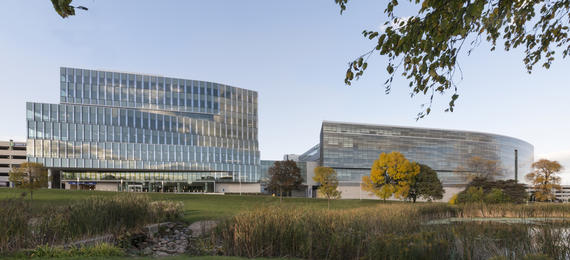Have you had itchy or watery eyes lately? How about sneezing with a runny or stuffy nose? If yes, you may be one of the 50 million people nationwide who suffer from some form of allergies.
Allergic rhinitis, the medical term for hay fever, affects 10 to 30% of all adults and 40% of all children in the United States. If you experience nasal congestion and/or a runny nose at certain times of the year, you might have allergic rhinitis or seasonal allergies.
Allergy Symptoms
Symptoms of allergies can be similar to symptoms of the common cold. While a cold is generally short-lived (7-10 days), allergy symptoms can linger for months or can be year-round. Symptoms of allergies include:
- Itchy, watery eyes
- Sneezing
- Runny nose
- Stuffy nose
- Postnasal drainage
- Cough
Individuals with seasonal pollen allergies may actually find relief during the colder winter months, while those with perennial (year-round) allergies may experience symptoms during that same time. In fact, individuals with mold, animal dander or dust mite allergies may be just as miserable in the winter time as they are during pollen seasons. Symptoms are often exacerbated when the furnace kicks on, sending dust mites and animal dander into the environment.
Colds can cause a fever, which is not a common symptom of allergies. If someone is allergic to pollen, he/she will usually notice a seasonal pattern to the symptoms.
Cold symptoms can be mistaken for allergies in young children. It is normal for children to have 6-10 colds per year, or more if they attend daycare. Newborns generally do not have respiratory allergies. It can take several seasons of exposure to a pollen to develop a seasonal allergy. Allergies to year-round allergens (dust mites, animal dander) can be seen earlier. Food allergies and eczema can develop in infants.
Allergy Testing
Allergy testing is helpful in determining whether symptoms are truly due to allergies. It is recommended that all patients with moderate or severe asthma undergo allergy testing. Determining what one is allergic to can help with knowing when to take medications (for seasonal allergies) and for implementing avoidance measures.
We can test for environmental allergens (pollen, dust mites, mold and animal dander), foods, stinging insects and some medications. Allergy testing is relatively painless and done in an allergist’s office.
Skin Allergy Test
Skin-prick testing is often used when nasal allergies are suspected. Very small amounts of possible allergens (materials that can cause allergic reactions) are injected beneath the skin; if the skin in that area becomes red and inflamed, you may be allergic to that allergen. Results are obtained in 20 minutes.
Blood Test
Blood tests can also be used to look for specific antibodies that may indicate the presence of an allergy. However, this is slightly less accurate than skin testing and it takes longer to get results.
Allergy Conditions Treated
We often see complications of allergic rhinitis, such as sinus infections, ear infections, headaches, disruption in sleep and poor school performance. We provide a complete range of allergy and immunology services helping you get back to the activities you enjoy. We help adults and children in the care and treatment of:
- Bee sting allergies
- Food allergies
- Hives
- Eczema
- Seasonal allergies
- Environmental allergies
- Medication allergies
- Pet allergies
- Asthma symptoms
- Immunotherapy treatment (allergy shots)
Clinic Locations Providing Allergy Services
Virtual Visits Are Available
Safe and convenient virtual visits by video let you get the care you need via a mobile device, tablet or computer wherever you are. We'll assess your condition and develop a treatment plan right away. To schedule a virtual visit, call 414-777-7700.









